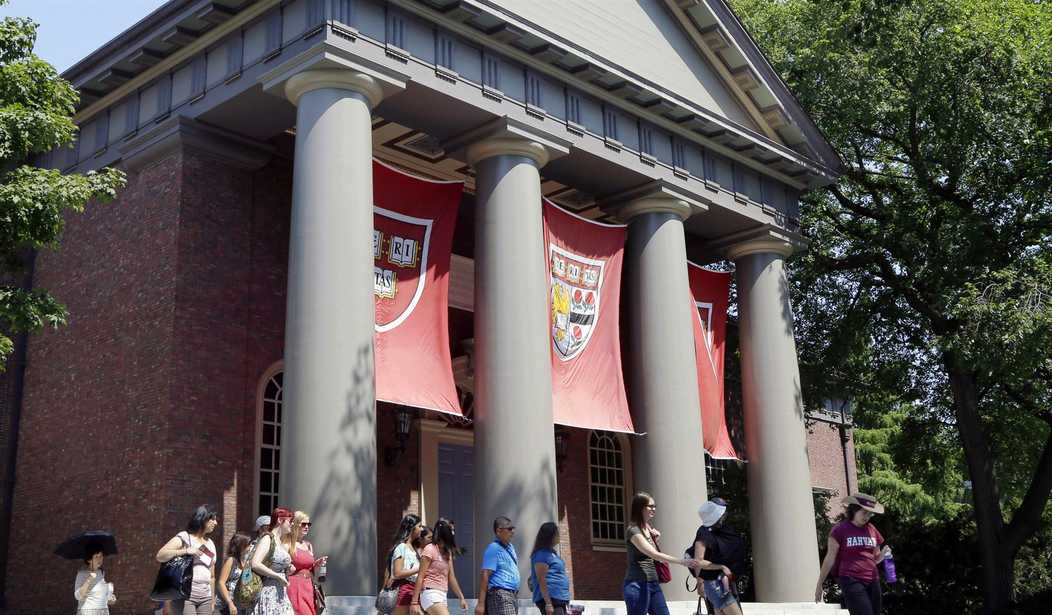A proposed Department of Homeland Security regulation would impose new restrictions on hundreds of thousands of foreign students and exchange visitors from 59 countries – mainly that visa holders would no longer be able to stay inside the country indefinitely without occasionally checking in with American authorities.
Why these and why now?
The Trump administration’s proposal drew immediate criticism and unflattering interpretations as soon as it was published. But the proposal itself, described in the 256-page Federal Registry posting up for public comment here through October 26 also provides a rationale that warrants public airing: to reduce the threats of Chinese espionage and international terrorism.
What Is Proposed
The gist of the changes is that F-1 visas for foreign students (more than a million admissions in 2019) and J-1 visas for exchange visitors (611,373 in 2018), such as researchers at academic institutes, would become subject to two or four-year expiration dates. The limits would replace the laissez-faire, essentially open-ended schedules that have given rise to far too much fraud, espionage, and terrorism. The rules would apply to students of 59 countries selected by a calculus of potential national security threat or the probability of abusing the visas as stepping stones to permanent immigration, legal or not. For instance, the more restrictive two-year visa expirations — with the chance to apply for time extensions before a DHS immigration officer — would apply to applicants from countries whose citizens tend to overstay their visas at a higher than 10 percent rate, like Nigeria, Cameroon, and the Democratic Republic of Congo.
By design, homeland security planners seek to exploit the fact that a great many visa recipients will need more than two or four years under the new regimen, since education programs often last longer. To secure that extra time, applicants will for the first time be forced into offices with DHS immigration officers as they apply for extensions they need to complete programs. They would provide biometric information and have face-to-face interviews with immigration officers. They would have to present evidence of past progress in their educational endeavors as well as demonstrate future need. They'd have to provide new specific completion dates for programs that might have changed. Throughout it all, they become subject to security risk evaluations.
Recommended
The DHS proposal language explains its goals like this: "These changes would ensure that the Department has an effective mechanism to periodically and directly assess whether these nonimmigrants are complying with the conditions of their classifications and U.S. immigration laws, and to obtain timely and accurate information about the activities they have engaged in and plan to engage in during their temporary stay in the United States."
By contrast, the current system requires no national security evaluations, check-ins with trained DHS officers, or proof of program viability for years, stretching stays in the country into decades. That state of affairs has enabled overstay abuse, fraud, and terrorism besides the recently discovered espionage.
Chinese Espionage
The way the visa programs operate now, the proposal explains, undermines U.S. national security "due to reduced opportunities for direct vetting of foreign academic students by immigration officers. But it also places research universities and the nation at risk for economic, academic, or military espionage by foreign students and exchange visitors."
The proposed rule change speaks of “multiple examples” in recent months where Chinese People’s Liberation Army spies posing as research scholars pilfered sensitive U.S. technologies while at Harvard University, the University of California at San Francisco, and many other academic institutions. All held the F or J visas.
Indeed, the FBI is in the midst of investigating and arresting dozens of Chinese students who allegedly lied on their visa applications that they were PLA members and then either stole material or essentially recruited and bribed American professors into giving up their knowledge of high technology to China. (See also this, this, this, this, this, and this.) The emergent national security problem came to be seen as so damaging by May of this year that President Trump cancelled more than a thousand visas held by Chinese graduate students and researchers.
As the most numerous students and researchers to American universities and research institutions, Chinese citizens apparently would be subject to four-year restrictions (with opportunity for renewal as long as they check in and submit to review).
The International Terrorism Threat
The two-year limit would apply to citizens of higher national security risk Muslim-majority nations such as Afghanistan, Somalia, Yemen, Iraq, Chad, Tajikistan, Uzbekistan, and Libya. It also would apply to citizens of the four U.S.-designated state sponsors of terrorism: North Korea, Iran, Sudan, and Syria. The proposal explains why:
“As the State Sponsor of Terrorism List are countries determined by the Secretary of State to have repeatedly provided support for acts of international terrorism, DHS believes it is appropriate to apply additional scrutiny to those who were born in these countries…to ensure that these aliens are complying with the terms of their admission and that they do not pose risks to the national security of the United States.”
The rationale for this traces to as far back as the first World Trade Center bombing in 1993, when it was discovered that two of the attackers had entered on student visas and overstayed them. Their sharpest focus as a national security vulnerability came with the 9/11 attacks, when investigators discovered that Saudi hijacking pilot Hani Hanjour used his F-1 visa to enter the United States for an English language program he never actually attended while he prepared for his attack role.
Despite efforts to tighten security vetting on the F-1 student visas after 9/11, more actors over the years have managed to enter the United States on the visas and conducted, plotted, or supported terrorist attacks, though there is debate as to how great the visa threat is in light of how many are issued annually.
Reasonable or Unreasonable?
In light of these ongoing espionage cases involving the J and F visas, nothing about the proposed restrictions comes off as particularly draconian, onerous, or expensive. The visa programs are not to be eliminated. The numbers granted won’t be capped. Opportunities for renewal and extension are baked in.
The new requirements seem fair for any sovereign country that has enemies in the world — and just about every country on the planet would comprise that list. In a statement about the wanted changes, Deputy DHS Secretary Ken Cuccinelli explained the changes soberly: the new regulation would "prevent foreign adversaries from exploiting the country's education environment."
Any nation ought to be interested in occasional reassurance that foreigner strangers, who are allowed in for extended time periods on their own recognizance and without any oversight, simply follow the rules and cause no harm.
Putting up with extension applications once every two years or at the end of four years should present no problem for any honorable student or exchange visitor who has nothing to hide.
Bensman is author of the forthcoming book, America’s Covert Border War.

























Join the conversation as a VIP Member